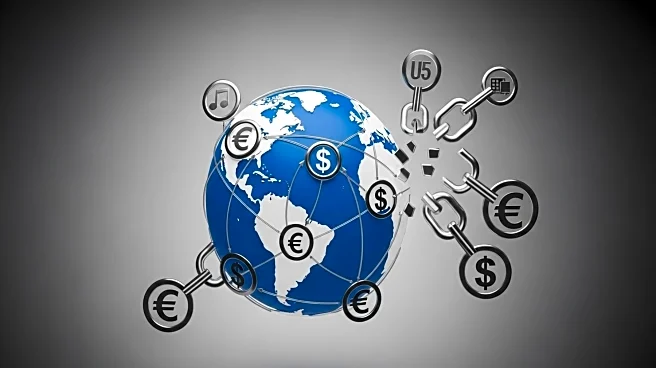What's Happening?
The European Union is expediting legislation to eliminate tariffs on US industrial goods in response to President Trump's demands. This move is part of a broader negotiation to lower US tariffs on European automobiles. The EU's plan includes preferential tariff rates on seafood and farm products, aiming to stabilize trade relations after years of tariff threats. The agreement, which favors US interests, is seen as necessary to maintain the flow of European car exports to the US. The EU is bypassing its usual impact assessment process to meet Trump's deadline, highlighting the urgency of the situation.
Why It's Important?
The EU's decision to eliminate tariffs on US imports is significant as it reflects the leverage President Trump has gained in trade negotiations. By securing a deal that benefits US industries, the agreement could lead to increased exports and economic growth for the US. However, the EU's concessions may raise concerns among European manufacturers, particularly in the automotive sector, which is a major export industry. The deal also underscores the ongoing trade tensions between the US and EU, with potential implications for future negotiations, especially regarding digital services and tech industry regulations.
What's Next?
If the EU successfully implements the tariff elimination by the end of the month, the reduced tariffs on European automobiles will be applied retroactively, benefiting Germany's auto industry. However, the broader trade relationship between the US and EU remains complex, with potential challenges ahead, particularly concerning digital service taxes. The EU's efforts to meet Trump's demands may only provide temporary relief, as further negotiations on tech industry regulations and other trade issues are likely. Stakeholders will be closely monitoring the situation to assess the long-term impact on transatlantic trade relations.











